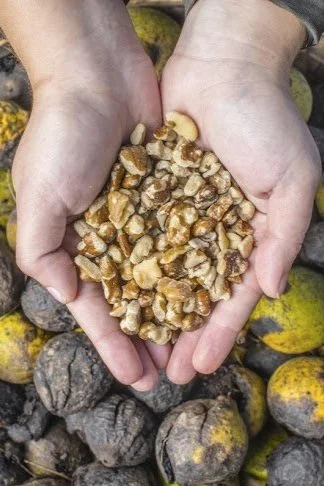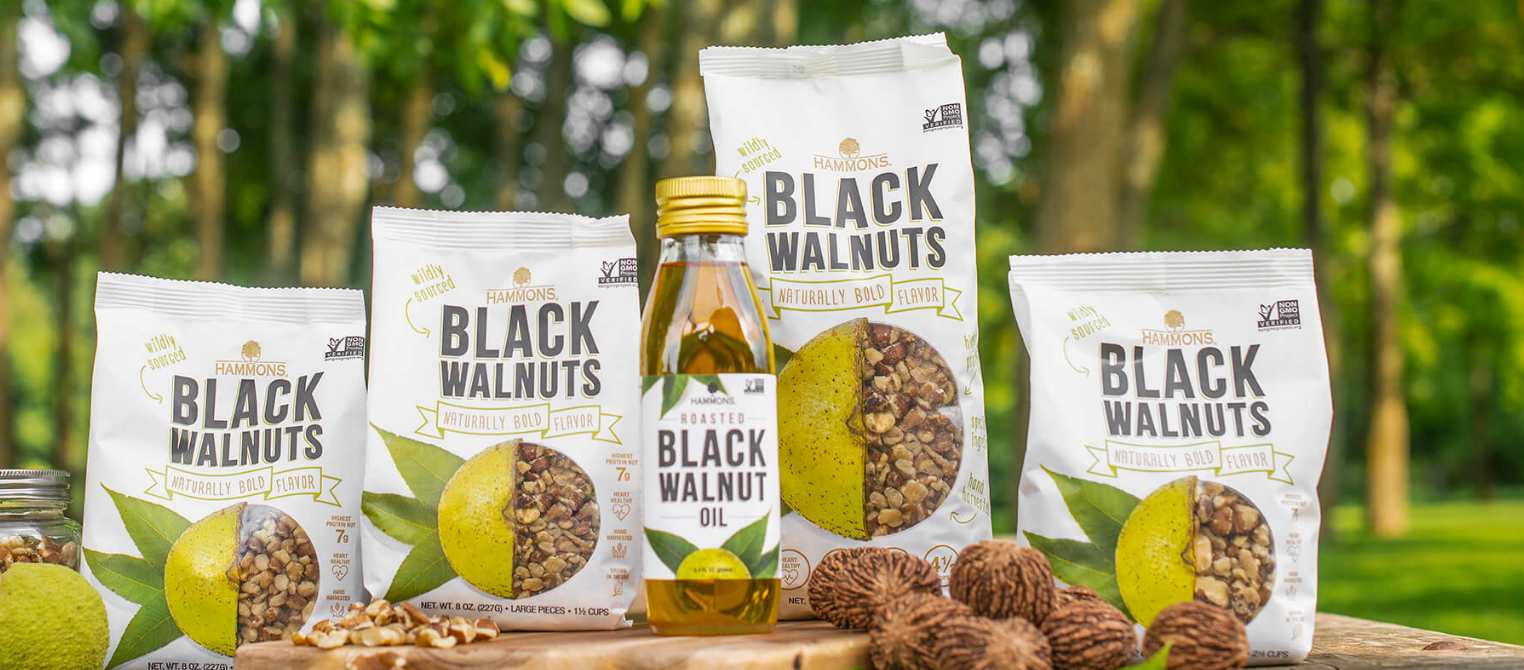Special Report:
Black Walnuts Powering the Wellness Evolution
This robust, sustainable super food is the wild nutritional powerhouse among tree nuts. The lingering global pandemic has altered lives, habits, and personal perspectives about health and wellness. Food as medicine is gaining mainstream traction as a key part of disease prevention and wellness. This “Wellness Evolution” also is changing the way people eat and their food purchasing decisions. Plant-based foods, simplicity, sustainability, and nutrient dense ingredients, like the American Black Walnut, are becoming increasingly important to shoppers. These health-driven shoppers also want fresh new products and variety. A whitepaper published in January from SPINS details major shifts in how shoppers are “changing in the wellness landscape,” and creating a new normal for shopping behavior and purchase decisions. Among them:
Interest in Plant-Based Foods
You see the term everywhere. It’s a reflection of the view that plant-based foods are healthier and more sustainable than those using animal products. The hot part of the market is driven by meatless alternatives to foods such as hamburger, sausage, chicken, and even bacon. While these alternatives have been around, modern food science is doing a much better job of making these alternatives taste like the real thing.
“The plant-based shopper isn’t any one demographic anymore. It’s every shopper,” according to the SPINS report.
One of the nutritional challenges faced by plant-based meat alternatives is offering sufficient protein. “Newer offerings, like Impossible meats, strive for nutritional parity with beef when it comes to protein and carbohydrate levels,” the report states. Tree nuts can be an important source of supplemental plant protein, and offering more than one variety boosts sales.“This diversity in dietary needs and lifestyle preferences is why you need to assume every shopper is a plant-based shopper,” the report says.
Proactive Health. An increasing number of shoppers are embracing personalized nutrition to support their health and wellness. The “food as medicine” trend is going mainstream, with more retailers employing dietitians and mainstream healthcare recognizing the need for a prescriptive approach to diet—well beyond weight loss. According to SPINS, the pandemic accelerated an already growing trend. “Every meal became a chance to improve wellness and hopefully stay out of the doctor’s office. This new mindset also set a foundation for shoppers to uphold these habits for the long term because they aren’t just reacting to sickness but rather improving how they feel and function on a daily basis and preventing sickness before it can even begin,” the report says.
Foods rich in nutrients that support immune health, energy, and improve health conditions have become well known. “The black walnut is already an important crop in the Midwest, but we are beginning to see it still has enormous potential,” said Chung Ho Lin, an associate research professor in MU’s School of Natural Resources and Center for Agroforestry. “The health benefits of phytosterols are well known, and now we have critical information for both consumers and producers that shows black walnuts are a great diet option for those looking to reduce their risk of cardiovascular disease.”
In addition, 16 phenolics have been identified in Black Walnuts, including phenolic acids, flavonoids and catechins, with ellagic acid predominating. And they are a rich source of protein and fiber.
Mission-Brands. The SPINS report underscores that people have become interested in the values and principles of the companies behind the brands. “Using your shopping list to improve life might sound lofty, but that’s what mission-oriented brands are promising,” the report says. This awareness includes sustainability and the environmental impact of cultivating, harvesting, processing, and shipping foods. The only tree nut that is almost entirely uncultivated is the American Black Walnut. Every fall, thousands of individuals take to parks, fields, and back yards to gather nuts dropped from wild, indigenous trees.
These nuts are taken to hulling stations where they’re collected and shipped to Missouri for processing, thus supporting local communities and maintaining the natural environment.
Prior to European settlement, Native Americans used Black Walnuts for food and the husks for medicine and dyes. Today Black Walnuts are commercially popular for home baking and ice cream, with growing interest in nut butters and oil, nutrition bars, bakery foods, and snacks. High protein Black Walnut flour also is being developed as a plant-based nutritional supplement.The Black Walnut has a rich legacy and an even more exciting future. Please let us know how we can provide more insight and information. Source material: Shoppers Are Leading a Wellness Evolution, 6 Ways Shoppers Are Pursuing Wellness, SPINS, January 2022.
The Hammons Black Walnut Family
Phone: 1-888-429-6887 or direct at 417-276-5181
Website: http://www.black-walnuts.com/




